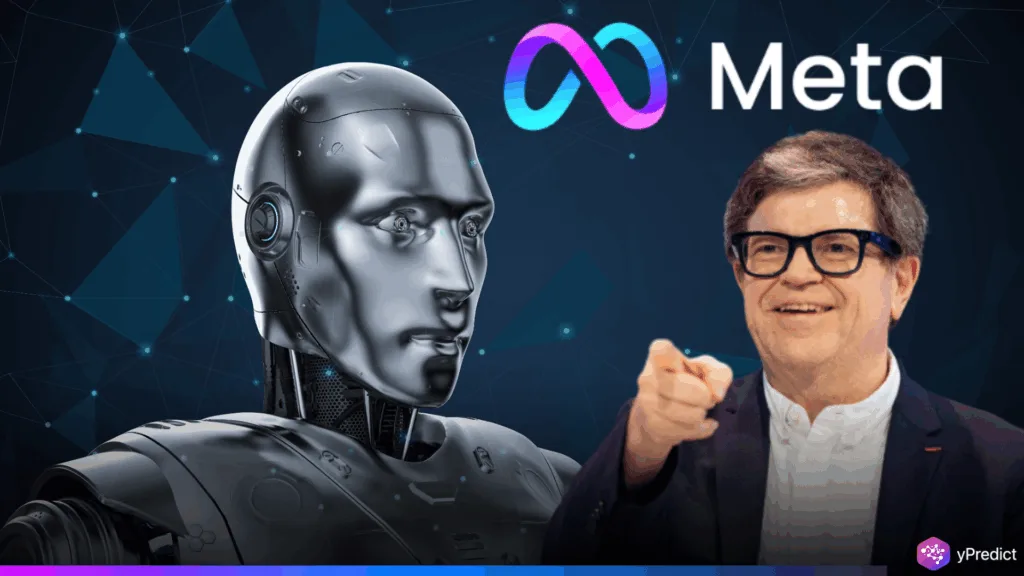
Yann LeCun, Meta’s chief AI scientist, believes large language models are not the starting point for achieving true human-like intelligence. During his speech at the AI Action Summit in Paris, LeCun outlined four essential traits of intelligent beings.
According to him, current AI systems don’t satisfy these standards, and a comprehensive overhaul of AI training techniques is required. This shift is reflected in V-JEPA, Meta’s most recent non-generative model. This model prioritizes abstract representations for predictive learning over surface-level data processing.
Building the Brains for Human-Like Intelligence
According to LeCun, intelligent behavior stems from four foundational capabilities. These include logical reasoning and the capacity to plan intricate, multi-step actions. Additionally, they require the capacity to store and retrieve past knowledge as well as an awareness of the physical surroundings.
He criticized the current method of simulating intelligence by adding tools like external memory modules. This covers methods like language model-based retrieval augmented generation (RAG). In his view, these additions are merely short-term fixes and do not lead to true human-like intelligence. Rather, LeCun advocates for a change in AI training toward more integrated, intrinsic methods.
How Does World Modeling Make AI Smarter?
LeCun presented the idea of world model-based AI, which refers to systems that mimic how the world changes in response to human actions. These models use an understanding of cause and effect to predict outcomes. According to him, pattern-based AI is unable to develop this sense of time, action, and consequence.
This idea is reflected in Meta’s V-JEPA model. V-JEPA, a non-generative model, learns by anticipating masked video segments, much like how people deduce context from partially visible input. LeCun also emphasized the importance of abstract prediction, which allows the system to focus on important patterns rather than specifics.
In addition to predicting the “what,” V-JEPA also attempts to predict the “why” and “how” of the world. This abstraction enhances focus by removing unnecessary details and noise. Furthermore, it reflects the hierarchies found in science, where molecules are built upon atoms and atoms upon particles. Such hierarchies are necessary for AI to fully understand the world and eventually attain human-like intelligence, LeCun said.
Meta’s Bold Vision for Human-Like Intelligence
LeCun is adamant that for AI to reach human-level intelligence, it must stop mimicking data. Instead, it needs to start building internal models of the world. Meta’s strategy involves training models on real-life scenarios rather than labeled datasets, aiming for higher cognition through experiential learning.
Meta is working to create systems that anticipate and adapt, in addition to recalling by integrating the concept of a world model. This involves replacing static learning with dynamic interaction, where the AI acts, anticipates outcomes, and learns from them.
In future AI development, this approach might reshape how tech companies handle AI training. We may see leaner, smarter systems that rely on deeper understanding in place of ever-larger, feature-rich models. This represents a significant shift in the AI race, with Meta putting itself at the forefront of innovation through V-JEPA.
Rethinking Intelligence for Smarter AI
Yann LeCun and Meta are establishing the groundwork for a time when artificial intelligence will be more than just responsive. In addition, it will possess long-term memory, reasoning, and planning abilities. Their research emphasizes the significance of human-like intelligence and the pressing need to reconsider machine learning. As the industry evolves, systems’ capacity to absorb and reproduce the world model might become more crucial. Therefore, it has become more important to teach machines to think like humans using advanced AI training techniques.






